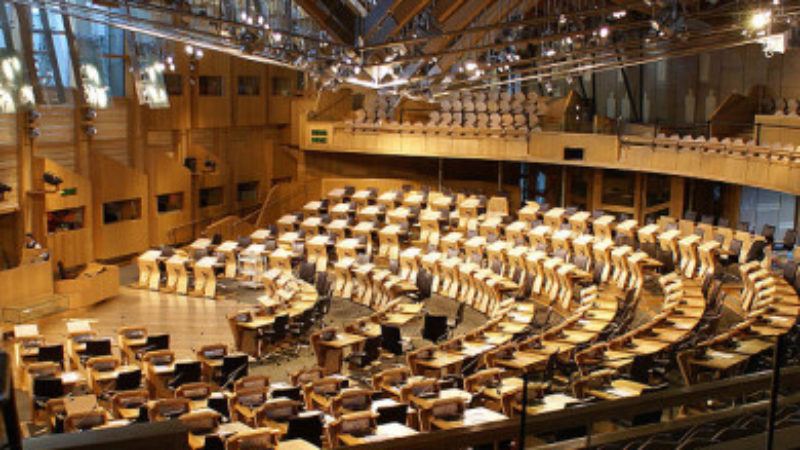
This morning, the Smith Commission’s recommendations have been announced, as Westminster continues to make good (and then some) on the promises made in “The Vow” before the Scottish referendum in September. There’s no doubt in my mind that when 55% of the Scottish people voted to stay in the Union with the knowledge of more powers to come, what’s being offered today would have exceeded their expectations. Indeed I’m sure that even the majority of those who voted in favour of independence would have accepted that a wide-ranging devolution of power (including income tax) more than meets the promise that was made to the Scottish people back in September.

Yet the SNP can’t accept that. There’s nothing short of independence that they would accept as fulfilling the vow. They’ve already come out and criticised the proposals for not reflecting “the full wishes of the people of Scotland”. They want to be able to lose their referendum but have their independence too. The betrayal myth is now an absolute centrepiece of the SNP’s platform. That was the inevitable outcome of September’s referendum. The base for the new SNP are those who marched on the BBC’s headquarters, made conspiracy-theory noises about rigged ballots and proudly proclaimed themselves to be “the 45%”. And that base must be appeased – and no amount of logic or reason is going to get in the way of that appeasement. Scotland has gained a huge swathe of powers today, but the SNP (who should want to wield these powers to change Scotland) instead turn their noses up at them. The new Scottish newspaper “The National” (more of a SNP fanzine than a genuine journalistic outfit) ignored the Smith Commission this morning in favour of a fawning appraisal of SNP land reforms. That’s because changing Scotland means one thing and one thing only to the Nationalists – independence is points 1 through 10 on their to do list.
As someone who genuinely thinks that governments have the capacity to change the world, I’m quite sad to see their absolutism blinding them to the opportunities these powers represent. The SNP’s rejection of these new powers to chance, build and grow Scotland are a real opportunity for whoever becomes Scottish Labour leader in a few weeks time to show how they’d use these tools to change Scotland for the better.
Of course, with great powers come great responsibilities – and great challenges. Devolving income tax powers to Scotland does fundamentally change the nature of the UK’s tax system, government spending and (in some ways) the union itself. It will present real challenges in terms of the ability of the Chancellor to manage the economy at a UK-wide level (although much of that risk has been minimised by ensuring that all MPs vote on UK budgets, and that the personal tax allowance remains decided in Westminster). And it could lead to one part of the UK attempting to undercut other parts of the UK on tax (which would have an impact on the North of England especially) – why would you work on one side of the border if you’re being taxed at a different rate to the same job two miles away? MPs – Scottish, English and Welsh – have said to be that this commission is both necessary, inevitable and a complete hostage to fortune, the consequences of which have not been adequately mapped out. These changes won’t lead to the break up of the UK, but they will lead to an althogether more complex and muddled political settlement, built ontop of our already incoherent and vague constitutional settlement.
Truly, if you were designing a system of government, you would not choose the one we have in Britain today.
That’s why a constitutional crisis – like any other crisis – should never go to waste. The Tories know this, which is why they’re trying to push through English Vote for English Laws. Their EVEL plan has every chance of succeeding, despite Labour’s understandable arguments to the contrary. Miliband’s proposed constitutional convention – with a Senate made up of our Nations and regions – has significant appeal, and (unlike the Smith Commission) means reform is led by people not politicians. But at present it’s too vague, too ill-defined and risks looking like a plan that’s being kicked into the long grass. And like EVEL – it does nothing to suggest anything other than continued complex asymetrical devolution. My preference – for a genuinely regional system of government in the UK – is probably too optimistic. But at least it’s clear, and leaves everyone in the UK with the same powers, the same relationship with the state and the same system of government.
Scotland has its new settlement, but the rest of us, unfortunately, must wait a little longer to see what this great hostage to fortune means for the rest of us.




More from LabourList
‘The High Court judgment brings more uncertainty for the trans community’
‘There are good and bad businesses. Labour needs to be able to explain the difference’
‘This ruling should now remove any remaining barrier to approval of EHRC code’